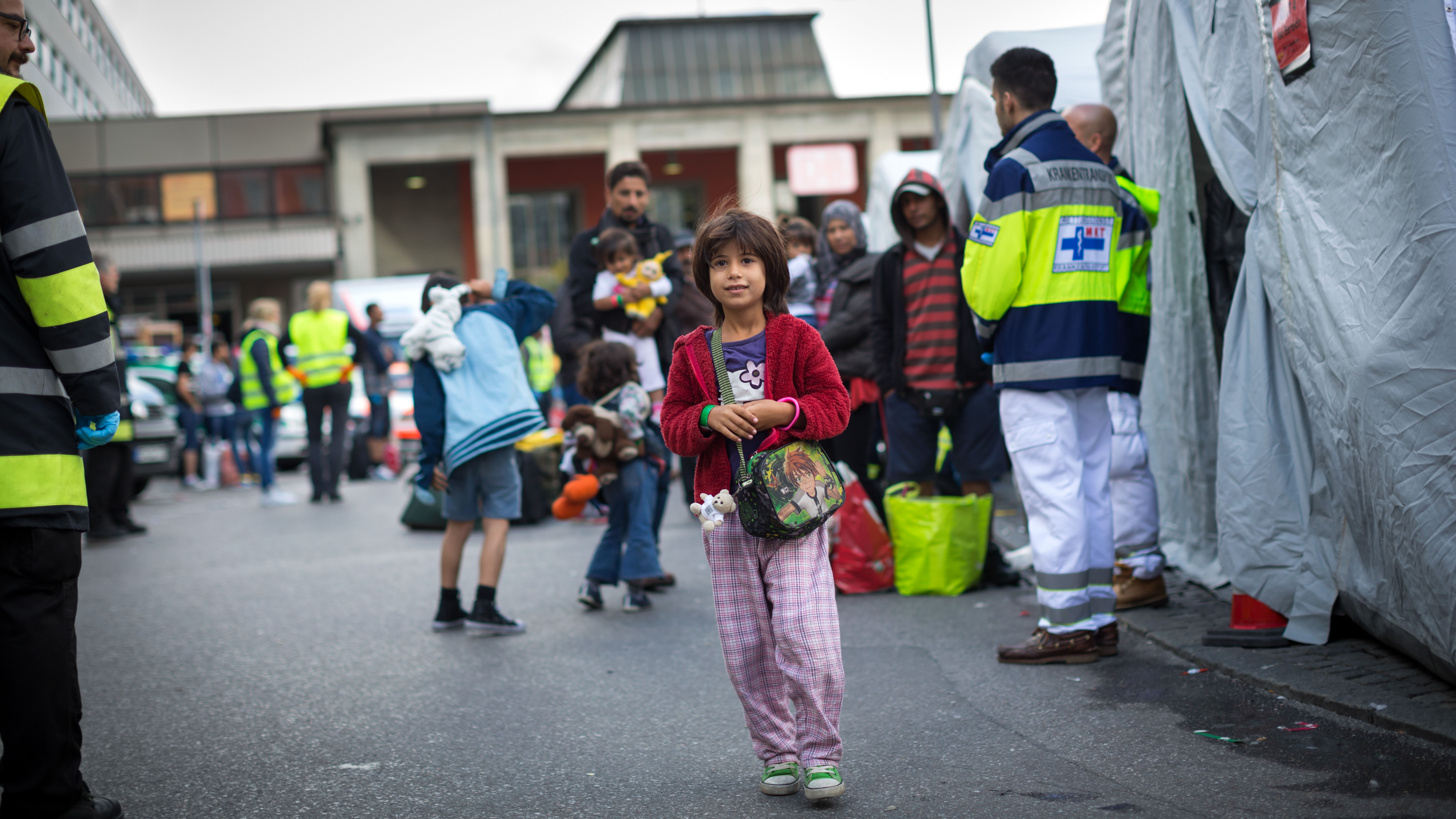They go beyond making it more difficult to cross borders. The explicit intention is often to make conditions for those fleeing war and persecution as unwelcoming as possible in the hope that they will seek safety elsewhere.
Some are a response to clearly overwhelmed reception and asylum systems – as in the case of Sweden and Germany. Others appear to be more pre-emptive, while some can only be described as punitive and draconian (see Hungary).
Here’s IRIN’s round-up:
Britain – The UK already had a law requiring asylum seekers to declare their assets and use their own savings before qualifying for government support, but starting in August 2015, the Home Office cut state support by almost a third to destitute asylum seekers awaiting the outcome of their refugee applications. A single parent with one child now receives £73.90 per week compared to £96.90 before the cuts. Asylum seekers in the UK are not allowed to work, meaning they are often completely dependent on the government allowance, which, even prior to the cuts, had been criticised by refugee rights groups as too low to meet their basic needs.
Hungary – Under the leadership of Prime Minister Viktor Orbán, Hungary has introduced an array of measures aimed at deterring refugees, to complement its razor-wire border fences. Hungary already had one of the lowest rates of refugee acceptance in Europe (only 105 out of 175,960 asylum applications were recognised between January and September 2015 according to EuroStat) and routinely detained asylum seekers in overcrowded conditions. As a result, the vast majority of those arriving via the Western Balkan route from Greece in 2015 moved on to other member states as quickly as possible. But from September, those who breached a new fence at the Serbian border could be prosecuted for damaging state property and jailed for up to three years. Anyone entering via Serbia – now designated a “safe” third country – was automatically considered an economic migrant and could be returned there without any need to examine an asylum claim. The use of detention during a “fast-track” asylum process was also increased.
Germany – In October 2015, Germany hastily approved a series of measures aimed at addressing an influx of asylum seekers, which, by that point, had already reached levels state authorities were describing as unsustainable. From November, asylum seekers could spend up to six months in so-called ‘initial reception centres’ – usually converted sports halls, abandoned hardware stories or warehouses where conditions were reportedly grim and certainly not conducive to local integration. In addition, cash support to asylum seekers staying in these reception centres was replaced with non-cash benefits as far as possible.
In the wake of criticisms surrounding Denmark’s proposed law, it emerged that several German states already have laws that allow cash and valuables over 350 or 750 euros to be taken from asylum seekers and put towards the cost of feeding and housing them.
Sweden – Having taken in more asylum seekers per capita than any other European country in 2015, Swedish Prime Minister Stefan Löfven announced in late November that “we simply can’t do anymore” and that the country was introducing measures aimed at reducing the rate of new arrivals. Starting in April 2016, refugees will only be granted temporary residence permits for three years while those granted subsidiary protection will only get one-year permits. Although the permits can be renewed, holders of three-year temporary residence permits will only have the right to be reunited with immediate family members such as spouses while holders of one-year permits will have no right to family reunification.
Norway – Draft legislation due to come before Norway’s parliament in February could see cash benefits to asylum seekers replaced with a voucher system and would limit possibilities for family reunification to those refugees who have already been working or studying in the country for four years. Asylum seekers entering the country via Russia – a route used by 5,500 asylum seekers in 2015 – would not qualify for asylum. Earlier this month, Norway started returning asylum seekers who entered the country by cycling across its Arctic border with Russia – a way around a Russian ban on border crossings by foot and a Norwegian one that criminalises driving migrants across the border. The Norwegian government eventually suspended these deportations after Russia raised security concerns.
Finland – At the end of 2015 – a year in which Finland received 30,000 asylum seekers, its highest number ever – the government announced a tightening of its asylum policies. Among a long list of measures with the stated goal of stemming “the uncontrolled influx of asylum seekers into Finland” are plans to tighten family reunification criteria, provide only essential reception services, and regularly review the security situation in countries of origin, cancelling residence permits when security improves. The government also said that asylum seekers could be assigned unpaid work as a way of relieving frustration.




